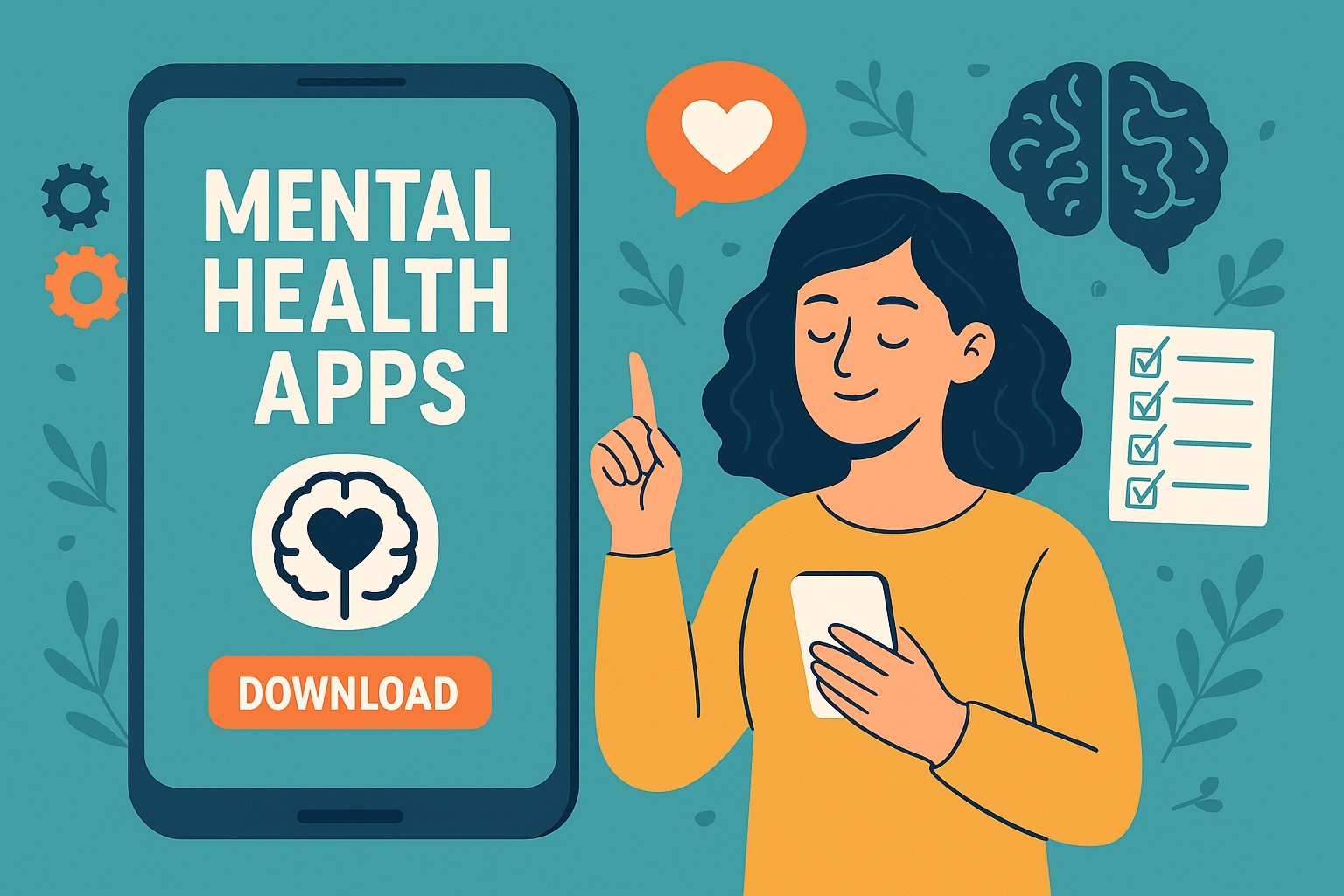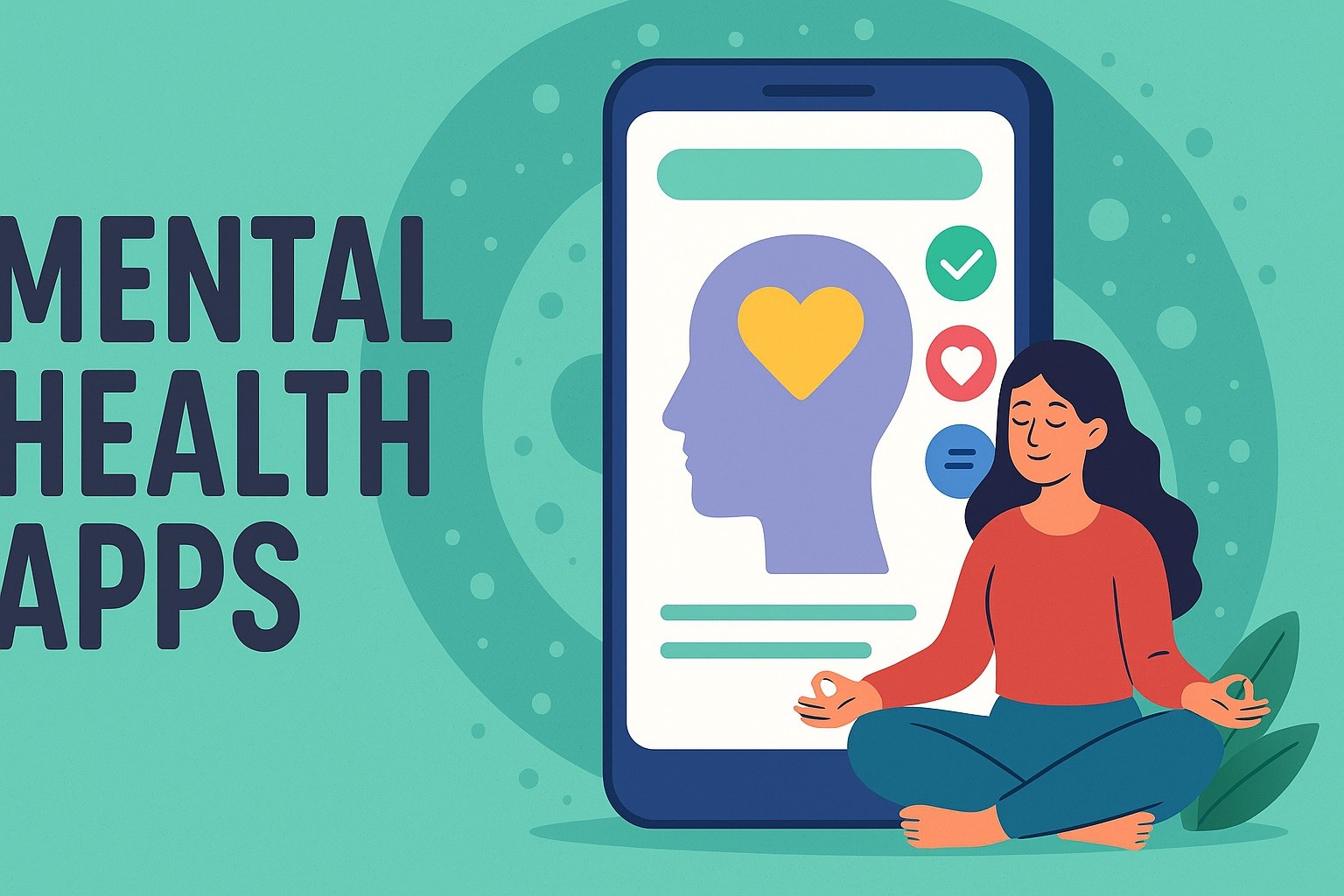Here’s a guide to help you navigate the vast landscape of apps to improve your mental health.
Many people struggle with stress, anxiety, depression, and other mental health issues, and managing these challenges is essential for overall well-being.
Fortunately, technology has provided us with tools to support our mental health, and mental health apps are at the forefront of this revolution.
Understanding the Role of Mental Health Apps
Apps to help your mental health serve a variety of purposes, from providing therapeutic support to offering tools for relaxation and mindfulness.
These apps cater to individuals at all stages of mental health care, from prevention to recovery.
- Therapy & Counseling Apps: These apps connect users with licensed therapists for online therapy sessions, allowing for convenient, accessible, and often affordable mental health care.
- Mindfulness & Meditation Apps: These apps focus on meditation, breathing exercises, and mindfulness techniques designed to reduce stress, anxiety, and promote emotional well-being.
- Mood & Habit Tracking Apps: These apps allow users to track their emotions and behaviors, helping them identify patterns and triggers that affect their mental health.
- AI-Powered Support Apps: These apps use artificial intelligence to offer personalized mental health support and self-help tools, often mimicking therapeutic techniques.
Top Apps to Improve Your Mental Health to Consider
With so many apps to use for mental health, choosing the right mental health app can feel overwhelming.
1. BetterHelp
BetterHelp is one of the leading online therapy platforms, offering users access to licensed therapists via text, video, or audio sessions.
It’s perfect for people seeking professional counseling in a more flexible and convenient way.
Use unlimited messaging, weekly live sessions, and a broad network of licensed therapists across different specialties.
- Platforms: Available on both iOS and Android.
- Cost: Subscription-based service; pricing varies based on your location and therapist availability.
BetterHelp is an excellent choice for individuals who need regular therapy sessions but may have difficulty attending in-person appointments.
The app is designed to be highly accessible, providing therapy wherever you are.
2. Headspace
Headspace is a popular meditation app that focuses on mindfulness practices to improve mental health.
It offers a range of guided meditations designed to reduce stress, enhance focus, and improve sleep quality.
Includes meditation sessions, sleepcasts, mindful breathing exercises, and stress-relief practices.
- Platforms: Available on both iOS and Android.
- Cost: Free trial available; a subscription is required for full access to the content.
Headspace has been scientifically proven to help reduce anxiety and stress. It’s especially helpful for beginners, thanks to its easy-to-follow guided sessions.

3. Calm
Calm is a versatile app that focuses on sleep, meditation, and relaxation techniques.
It is especially useful for those experiencing anxiety and sleep problems, offering tools to help users relax and unwind.
Displays sleep stories, guided breathing exercises, soothing music, and meditation sessions.
- Platforms: iOS and Android
- Cost: Free version available; premium subscription required to access additional features.
Calm is particularly known for its sleep stories, which are designed to help users drift off to sleep more easily.
The app has been widely praised for its calming, relaxing atmosphere and its ability to reduce stress.
4. Wysa
Wysa is an AI-driven chatbot designed to offer emotional support through text-based conversations.
It’s a great option for individuals who prefer self-help tools and need assistance with managing anxiety, depression, or stress.
Use AI-driven conversations, mood tracking, CBT (Cognitive Behavioral Therapy) exercises, and therapeutic support.
Wysa’s AI uses therapeutic techniques to guide users through their mental health journey.
It’s great for people who need immediate support but aren’t ready for full-scale therapy.
5. Youper
Youper is another AI-driven mental health app designed to help users track their moods and emotions.
It combines therapeutic methods, like Cognitive Behavioral Therapy (CBT) and mindfulness, to guide users toward better emotional well-being.
Includes AI-powered conversations, mood tracking, and personalized mental health insights.
Youper stands out for its ability to adapt its responses based on your mood and mental health needs.
It offers users a more tailored approach to emotional wellness, using AI to track patterns and suggest improvements.
6. Smiling Mind
Smiling Mind is a mindfulness and mental health app with programs for people of all ages, from children to adults.
It offers evidence-based mental health programs to improve emotional regulation and promote mental well-being.
Mindfulness programs, emotion regulation tools, and educational content.
Smiling Mind is especially beneficial for younger users, offering programs designed for children and teenagers.
It’s a valuable resource for families looking to foster mindfulness and emotional intelligence in their children.
7. Bearable
Bearable is a mood and symptom tracker that allows users to track their emotional well-being, sleep patterns, and other health metrics.
By logging these details, users can identify triggers and patterns that impact their mental health.
Offers customizable tracking, data visualization, and reporting tools.
- Platforms: iOS and Android.
- Cost: Free with premium features available.
Bearable is perfect for individuals who want to understand their mental health better and track their progress over time.
The app provides a comprehensive overview of patterns, helping users manage their symptoms more effectively.
Tips for Choosing the Right App
Determine whether you’re looking for therapy, meditation, mood tracking, or AI-driven support.
Choose apps developed in collaboration with licensed mental health professionals or reputable mental health organizations.
Make sure the app has a clear privacy policy and data protection measures to safeguard your information.
Look for apps to improve your mental health that offer free trials to assess their effectiveness before committing to a subscription.

Additional Resources
Mind Apps is an interactive tool developed by Harvard Medical School to find the best apps to improve mental health based on privacy, evidence, and clinical needs.
Verywell Mind provides a curated list of the best mental health apps, including options for therapy, mindfulness, and mood tracking.
Choosing Therapy offers comparisons of top mental health apps, highlighting features and user ratings.
Final Thoughts
Apps to improve your mental health can be a valuable tool in your wellness journey, offering support and resources at your fingertips.
By carefully selecting an app that aligns with your needs and preferences, you can take proactive steps toward improving your mental well-being.
Remember, while these apps can provide valuable support, they are not a substitute for professional therapy or medical advice.



